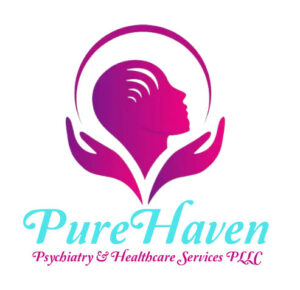Critical Signs of Bipolar Disorder in Washington (and Where to Find Life-Changing Treatment)
Living with bipolar disorder can be overwhelming—especially when symptoms go undiagnosed or misunderstood. In Washington, individuals often face barriers to timely mental health care, leading many to suffer in silence. Recognizing bipolar disorder symptoms in Washington is crucial for seeking early intervention and long-term stability.
Whether you’re concerned about sudden mood changes, prolonged depression, or unpredictable bursts of energy, this blog will help you understand the warning signs, how bipolar disorder manifests differently across individuals, and what treatment options are available in Washington. Early diagnosis and proper care can make a world of difference—and you don’t have to face it alone.
Table of Contents
- What Is Bipolar Disorder?
- Common Bipolar Disorder Symptoms in Washington
- Types of Bipolar Disorder and How They Differ
- Unique Challenges for Washington Residents
- When to Seek Help Locally
- Effective Bipolar Disorder Treatment in Washington
- How Early Diagnosis Transforms Lives
- Call to Action
- Final Thoughts
1. What Is Bipolar Disorder?
Bipolar disorder is a serious mental health condition characterized by intense mood swings that alternate between depressive lows and manic highs. These episodes can disrupt daily life, relationships, and even a person’s sense of self. Although often misunderstood, bipolar disorder is manageable with proper diagnosis and treatment. Recognizing the bipolar disorder symptoms in Washington is especially vital due to varying levels of mental health access across different communities.
2. Common Bipolar Disorder Symptoms in Washington
People in Washington who suffer from bipolar disorder may experience:
-
Extended periods of sadness or hopelessness
-
Sudden bursts of energy, high self-esteem, or impulsivity
-
Trouble sleeping—either insomnia or excessive sleep
-
Difficulty concentrating or completing tasks
-
Risky behaviors during manic phases
-
Social withdrawal or relationship difficulties
Because these symptoms may mimic other mental health issues like anxiety or depression, many people overlook the possibility of bipolar disorder. That’s why identifying bipolar disorder symptoms in Washington early can prevent years of misdiagnosis or untreated suffering.
3. Types of Bipolar Disorder and How They Differ
There are several forms of bipolar disorder, each with distinct symptoms:
-
Bipolar I: Characterized by manic episodes lasting at least seven days or requiring hospitalization. Depressive episodes usually follow.
-
Bipolar II: Includes patterns of depressive and hypomanic episodes but no full-blown manic episodes.
-
Cyclothymia: Milder mood swings that still disrupt daily life.
Understanding which type you’re dealing with is essential in shaping an effective treatment plan. Mental health professionals across Washington are trained to distinguish between these forms and offer specialized care based on individual symptoms.
4. Unique Challenges for Washington Residents
Washington’s climate, cost of living, and fast-paced urban environments can compound the effects of bipolar disorder. For some, the long, dark winters can worsen depressive symptoms—a condition known as Seasonal Affective Disorder (SAD)—making it harder to identify what’s seasonal and what’s clinical. Others may struggle with access to consistent care, especially in rural areas. By focusing on bipolar disorder symptoms in Washington, this blog aims to help residents take proactive steps despite these regional challenges.
5. When to Seek Help Locally
Recognizing the warning signs and knowing when to seek help can be life-saving. If you or a loved one in Washington is experiencing any of the following, it’s time to speak to a mental health provider:
-
Sudden shifts in mood that feel uncontrollable
-
Thoughts of self-harm or suicide
-
Impulsive decisions like reckless spending, unsafe sex, or substance use
-
Long periods of depression followed by unexpected energy boosts
-
Inability to function at work, in school, or at home
Timely intervention can drastically improve outcomes. There are many accessible mental health resources available throughout the state—whether you’re in Seattle, Spokane, Tacoma, or smaller towns. Understanding and acting on bipolar disorder symptoms in Washington ensures you don’t face this challenge alone.
6. Effective Bipolar Disorder Treatment in Washington
Washington offers a range of evidence-based treatment options tailored to individuals with bipolar disorder. These include:
-
Mood-stabilizing medications like lithium or antipsychotics
-
Psychotherapy, such as Cognitive Behavioral Therapy (CBT) and Interpersonal and Social Rhythm Therapy (IPSRT)
-
Support groups for peer connection and shared experiences
-
Lifestyle changes, including sleep regulation, exercise, and routine building
-
Telepsychiatry services for residents in remote areas
Whether you live in a city center or rural community, addressing bipolar disorder symptoms in Washington early with these treatments can lead to a more stable and fulfilling life.
7. How Early Diagnosis Transforms Lives
Catching the signs early can truly change everything. For individuals struggling with bipolar disorder symptoms in Washington, an early diagnosis can mean:
-
Getting the right treatment sooner
-
Avoiding the risk of misdiagnosis (such as being treated for depression alone)
-
Building stronger support systems at home, work, and in school
-
Reducing the frequency and intensity of future episodes
-
Protecting relationships, careers, and emotional well-being
With proper care and lifestyle support, people living with bipolar disorder can thrive. Washington’s growing mental health awareness means more professionals are trained to catch signs early and provide hope for recovery.
8. Call to Action
If you or someone you love is showing bipolar disorder symptoms in Washington, don’t wait for things to spiral. At Pure Haven Psychiatry, we provide compassionate evaluations, accurate diagnosis, and personalized treatment plans tailored to your life. Whether you’re unsure about your symptoms or seeking a second opinion, we’re here to support your journey toward mental wellness.
Reach out today to schedule an appointment—because clarity and healing begin with that first step.
9. Final Thoughts
Living with bipolar disorder can be overwhelming—but it doesn’t have to be. Early recognition, the right diagnosis, and quality treatment make all the difference. By identifying bipolar disorder symptoms in Washington, you empower yourself to take control and reclaim your life.
Help is within reach, and recovery is real. Let today be the beginning of your new chapter.
Disclaimer
This blog is intended for informational purposes only and should not replace professional medical advice. If you or someone you know is experiencing severe mood swings, suicidal thoughts, or other concerning symptoms, contact a licensed mental health provider or call emergency services immediately.

